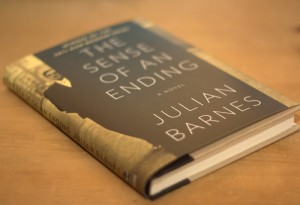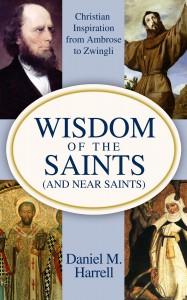 Over at a friend’s house the other night, the conversation kept going back to high school as if that was the high peak of people’s lives even as they’ve moved into middle age. What is it about those experiences of youth—the fleeting moments of adventure and love and excitement (or at least as we remember them) that haunt us as we get older? Julian Barnes in his best-seller, The Sense of an Ending, let’s us explore this reality through the eyes of Tony Webster, a man who narrates from his sixties about the obsessions of his early twenties. Tony ruminates over and over again as if to suck every last drop of energy out of encounters that comprise mere blips in his personal history, mere blips that nevertheless ripple into his present like so many butterfly flaps that transform into hurricanes (again, in our minds).
Over at a friend’s house the other night, the conversation kept going back to high school as if that was the high peak of people’s lives even as they’ve moved into middle age. What is it about those experiences of youth—the fleeting moments of adventure and love and excitement (or at least as we remember them) that haunt us as we get older? Julian Barnes in his best-seller, The Sense of an Ending, let’s us explore this reality through the eyes of Tony Webster, a man who narrates from his sixties about the obsessions of his early twenties. Tony ruminates over and over again as if to suck every last drop of energy out of encounters that comprise mere blips in his personal history, mere blips that nevertheless ripple into his present like so many butterfly flaps that transform into hurricanes (again, in our minds).
Barnes’ writing is both clever and gut-wrenching. It eats at the way we over-regard our own importance, presuming that our influence matters and that we really do affect profound change in the lives of others with indelible frequency. Not that Tony doesn’t recognize this himself:
But time … how time first grounds us and then confounds us. We thought we were being mature when we were only being safe. We imagined we were being responsible but were only being cowardly. What we called realism turned out to be a way of avoiding things rather than facing them. Time … give us enough time and our best-supported decisions will seem wobbly, our certainties whimsical. [Barnes, Julian (2011-10-05). The Sense of an Ending (Borzoi Books) (p. 102). Random House, Inc.. Kindle Edition.]
Tony is familiarly self-absorbed, predictably generating existential angst and relational turmoil. It makes for good, if painful, reading (since for the similarly self-absorbed to read any book is to see themselves in it). Scripture repeatedly cautions against self-absorption in favor of humility. Hebrew College professor Solomon Schimmel reminds that humility requires us to be brutally honest with ourselves even if we are unhappy with what we see. The proud person rationalizes his faults, since to acknowledge them would threaten his sense of superiority. The humble person, on the other hand, readily admits guilt and patiently listens to reproof—even from her enemies. Your enemies never try to protect your self-image. Their scrutiny is often more accurate than that of your friends who’ll lie to make you feel better.
Of course, if such scrutiny only leads you to blame yourself unduly for your faults and shortcomings, then it is not genuine humility. To excessively berate yourself puts you in that twisted position of being proud of your humbleness. In the end you’re just as obsessed with yourself as you were when you were smug. Pride is inordinate self-concern whether you cloak it in self-congratulation or self-condemnation. Both attribute more power and importance to yourself than you actually possess.
They key to true humility is not to think less of yourself, but to think of yourself less. Catholic mystic Thomas Merton once asked, “How can you be humble if you are always paying attention to yourself? If you were truly humble you would not bother about yourself at all.” And you wouldn’t be so bothered by Barnes’ book.











